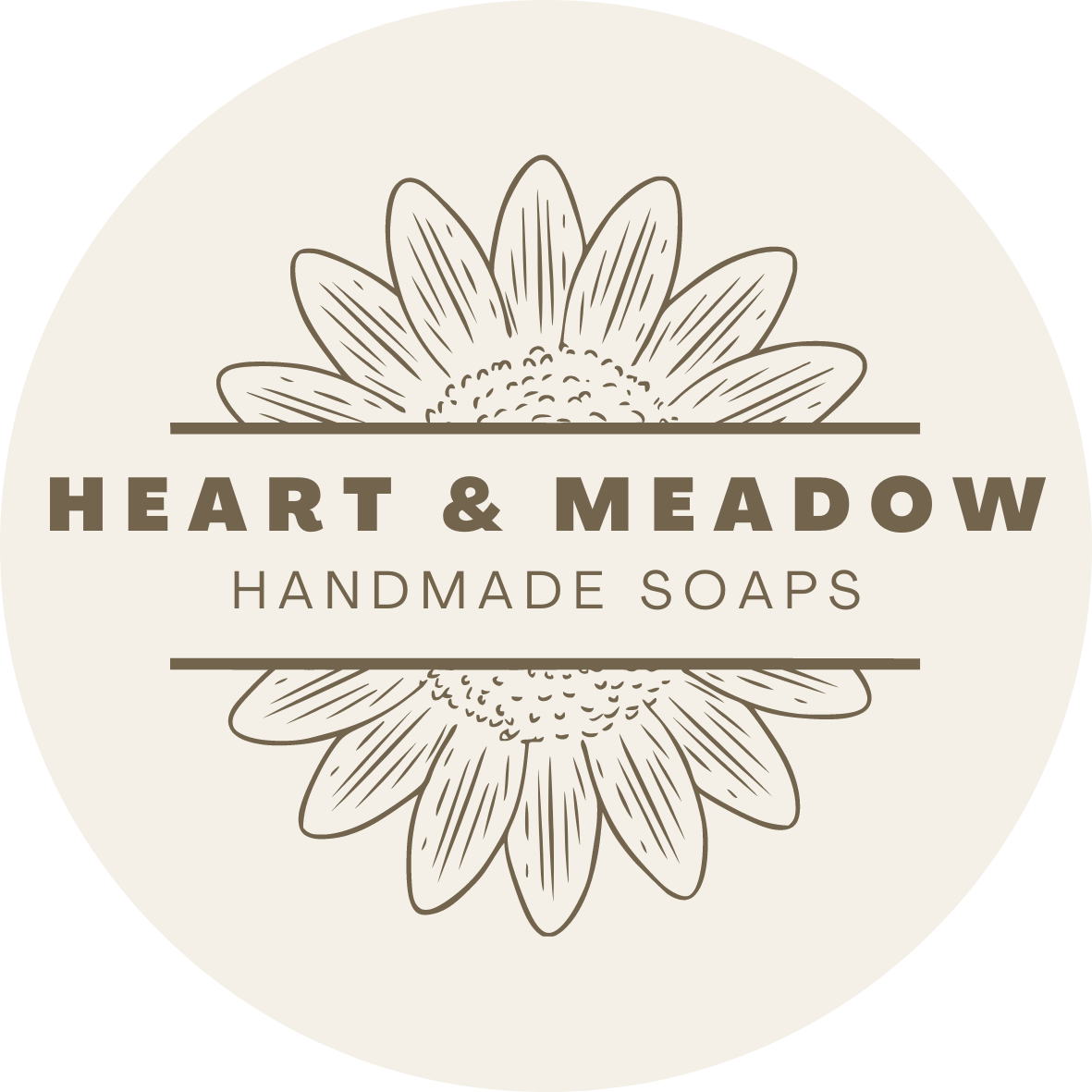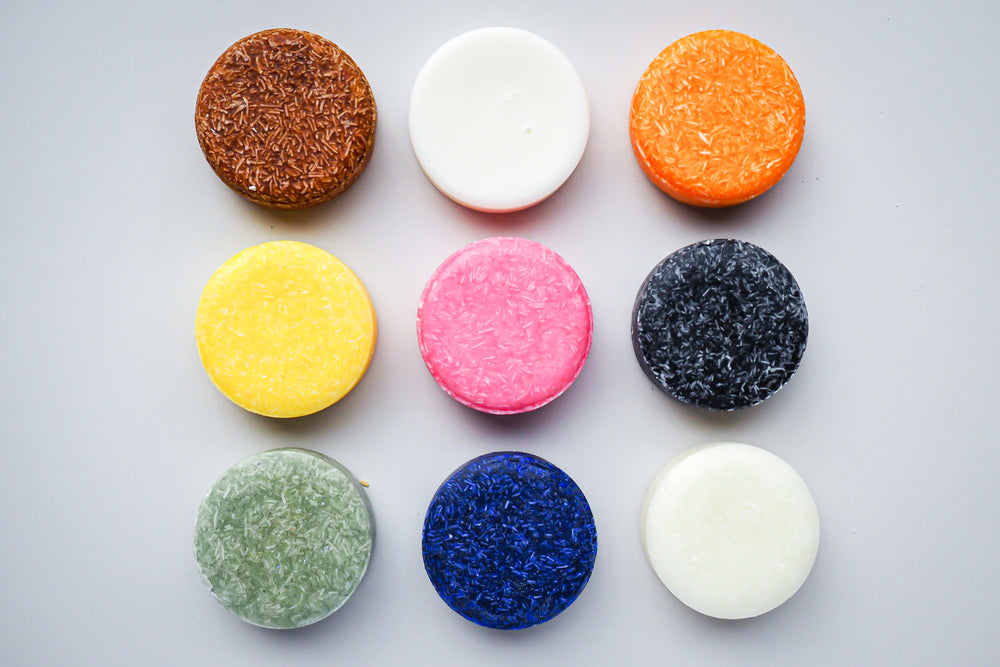You may have noticed a growing trend popping up in the hair care world: shampoo bars & conditioners! And with good reason - did you know that in the US more than 1.5 million plastic shampoo bottles wind up in landfills instead of being recycled EVERY DAY? This is appallingly wasteful, especially since shampoo bars provide the exact same (and in my opinion, superior) haircare benefits with zero waste.
As the name suggests, shampoo bars (for simplicity I'll refer to both conditioner bars & shampoo bars and simply "shampoo bars" going forward), are cleansers and conditioning agents molded into solid form instead of a liquid. This is awesome, because it means:
- They weigh far less, so they cost less to ship (to you or to a retail store). This is great for your wallet AND for carbon emissions.
- They enable plastic-free packaging, so no more bottles winding up in our landfills and oceans.
- They take up less space in your shower or cabinet.
- They're travel friendly! Since they're solid, there are no TSA requirements. Plus, if you bring your own bar, you can forego those tiny plastic hotel bottles, which usually hold crap shampoo anyway.
- They last a long time. With bars, you get the same cleansing/conditioning benefit while using far, far less. Around 80% of your liquid shampoo is just water! You don't need it.
So what IS it, anyway? Before I get into that let me tell you what it is NOT.

There are some soap makers out there that make shampoo bars using the traditional cold process soap method - adding lye to oil to trigger a chemical process called saponification. That is how I make my handcrafted soaps. Cold process soap always has a pH of 9 - 10, which is what makes it an effective cleanser - that pH level kills germs. Your skin, which is quite hardy, has a natural oil barrier which enables it to withstand this pH. I also add good stuff like goat milk, extra premium oils, silk protein, kaolin clay, and more to my soaps to ensure they don't strip away that oil barrier.
Your hair, on the other hand, is much more delicate. An alkaline product with a high pH damages the keratin, making your hair more prone to breakage. It also opens up the cuticles making the hair more porous, and will increase the chances of it getting tangled and frizzy.
Okay, still with me? This is why I do not make "soap shampoo." I love cold process soap, but I don't want to use it on my hair. So instead, I make what is called a "Syndet bar" - or "SYNthetic DETergent."
::gasp:: Synthetic!? Yes. Hear me out.
Using synthetic cleansers enables me to make a quality product that effectively cleans your hair, while still maintaining a hair-friendly pH. I can also control how gentle the product is, and I can layer in ingredients that add smoothness, shine, volume and moisture. Lastly, using synthetic ingredients ensures my products are consistently high-quality, and certified cruelty-free.
Syndet bars contain three main types of ingredients: Surfactants, Humectants, and Emulsifiers. Surfactants create bubbles/lather, and provide cleansing properties. When you think about germs and oils being "trapped" by soap and washed down the drain, that's surfactants at work. Precisely HOW they do this is beyond the scope of this article, but just know you can go down a chemistry rabbit hole here if you're so inclined.
Humectants are water-loving ingredients that pull moisture to them. Use too much and humectants will make your hair frizzy, but just a bit, like the Vitamin B5 I add to my bars, help keep hair hydrated and healthy.
Finally, Emulsifiers bind water-based ingredients to oil-based ingredients. For example, egg yolks are a common emulsifier used to create foods like ice cream, mayonnaise, and hollandaise sauce. In cosmetics, emulsifiers not only create a stable substance, but also provide silkiness, and form a protective barrier on your skin/hair to lock in moisture.

But what about Silicones?
Silicones have gotten a bad rap from companies aligning with the "all-natural" brand position. They say that silicones build up on your hair and weigh it down. The oft-cited study to support this claim is here, if you're curious. This study examined the effect of leave-in products containing silicones on hair. It honestly comes as no surprise to me that if you use a leave-in product that creates a film on your hair, it's going to build up over time, silicones or no silicones.
The "natural" cosmetics industry has also made claims that silicones are toxic to your body and contribute to microplastics in the environment. This is patently false! Silicones are not plastic, but rather organosiloxanes, which contain alternating silicone-oxygen-silicone atoms, bonded to carbon. They’re made from sand (silicon dioxide), not petroleum. Silicones are frequently used in medicine because they’re so hypoallergenic, non-irritating, and unreactive. They're also vegan, cruelty free, and naturally degrade in the environment. There is no link to cancer or hormone disruption or any other long-term health effects, and regulatory authorities around the world have said that they’re not a risk to humans. Check out this article for more information about the safety of silicones
I use the silicones dimethicone and cyclomethicone at a rate of 2% in both my shampoo and conditioners, because they:
- Act as a conditioning agent to minimize friction, tangles, and frizz while simultaneously improving the shine, smoothness, and manageability of your locks
- Protect your hair strands from harmful external elements like pollutants, humidity, abrasion, and heat styling
- Help minimize moisture loss from the fibers
- Reflect light off your hair shafts so that hair appears shiny
- Enhance the body of your tresses for a volumizing effect
After all of my research I have concluded that they create a superior product and are absolutely safe for humans and the environment. The only caveat would be for color-treated hair: regularly using silicones in hair products DOES create a protective layer around the hair shaft, which will limit the penetration of the hair colorant. I recommend laying off my shampoo bars for a few days before your trip the the salon, and washing with a clarifying shampoo (just once!) before your visit.
The bottom line:
I did the work so you don't have to. The ingredients I use in my shampoo bars are safe, gentle, and effective. Extras like Vitamin B5, Mango Butter, Avocado Oil, and Oat Protein give you soft, beautiful hair and a healthy scalp. Available in Autumn Apple, Rosemary Mint, and my best-selling Coachella Acid Trip scents! Get yours today and join the plastic-free, shampoo-bar revolution!

